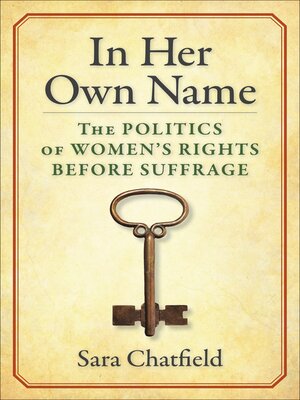
Sign up to save your library
With an OverDrive account, you can save your favorite libraries for at-a-glance information about availability. Find out more about OverDrive accounts.
Find this title in Libby, the library reading app by OverDrive.



Search for a digital library with this title
Title found at these libraries:
| Loading... |
Co-Winner, 2024 V.O. Key Award, Southern Political Science Association
Long before American women had the right to vote, states dramatically transformed their status as economic citizens. In the early nineteenth century, a married woman had hardly any legal existence apart from her husband. By the twentieth, state-level statutes, constitutional provisions, and court rulings had granted married women a host of protections relating to ownership and control of property. Why did powerful men extend these rights during a period when women had so little political sway?
In Her Own Name explores the origins and consequences of laws guaranteeing married women's property rights, focusing on the people and institutions that shaped them. Sara Chatfield demonstrates that the motives of male elites included personal interests, benefits to the larger economy, and bolstering state power. She shows that married women's property rights could serve varied political goals across regions and eras, from temperance to debt relief to settlement of the West. State legislatures, constitutional conventions, and courts expanded these rights incrementally, and laws spread across the country without national-level coordination.
Chatfield emphasizes that the reform of married women's economic rights rested on exclusionary foundations, including protecting slavery and encouraging settler colonialism. Although some women benefited from property reforms, many others saw their rights stripped away by the same processes. Drawing on a mix of qualitative and quantitative evidence, In Her Own Name sheds new light on the place of women in the fitful democratization of the United States.






